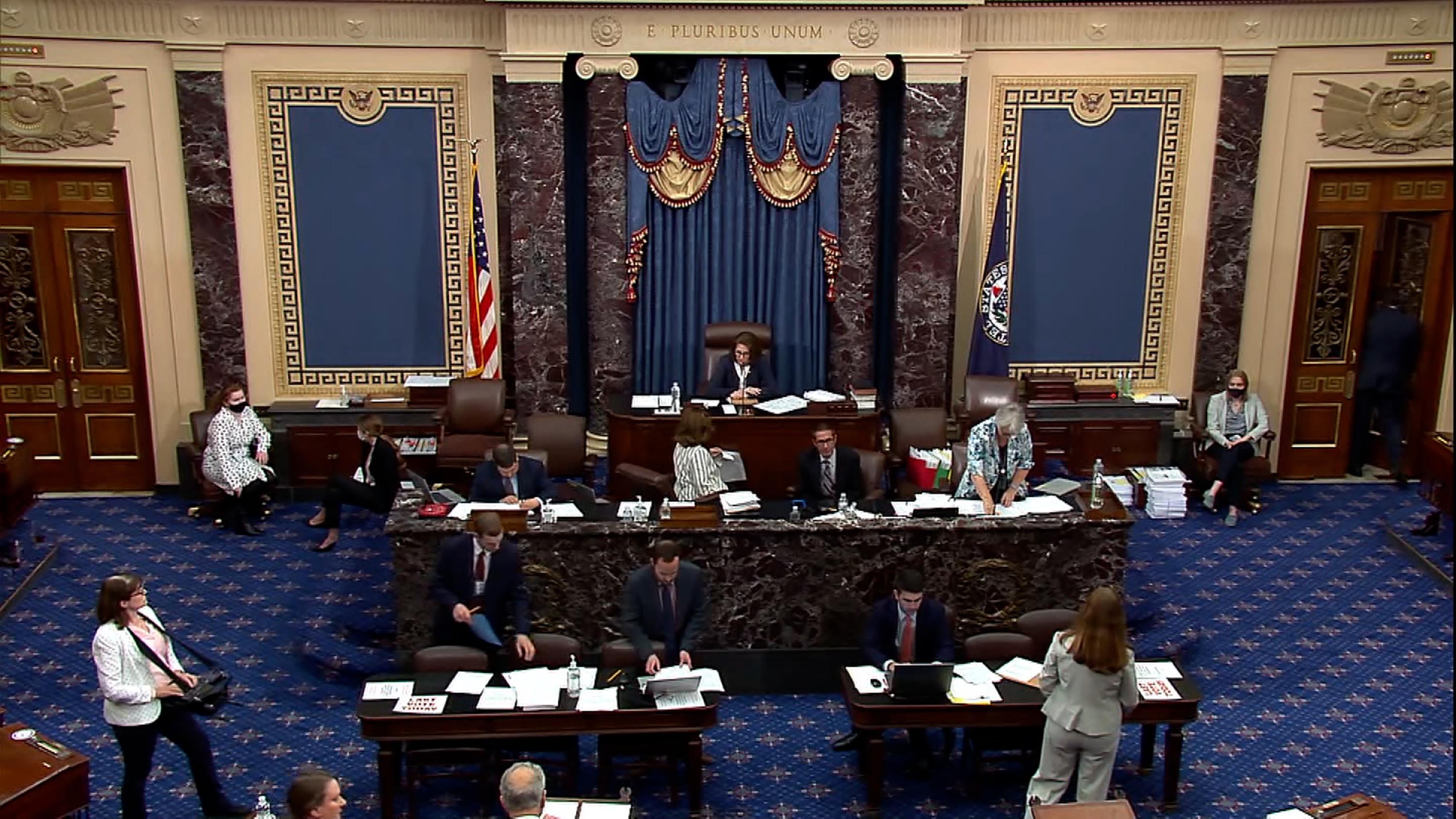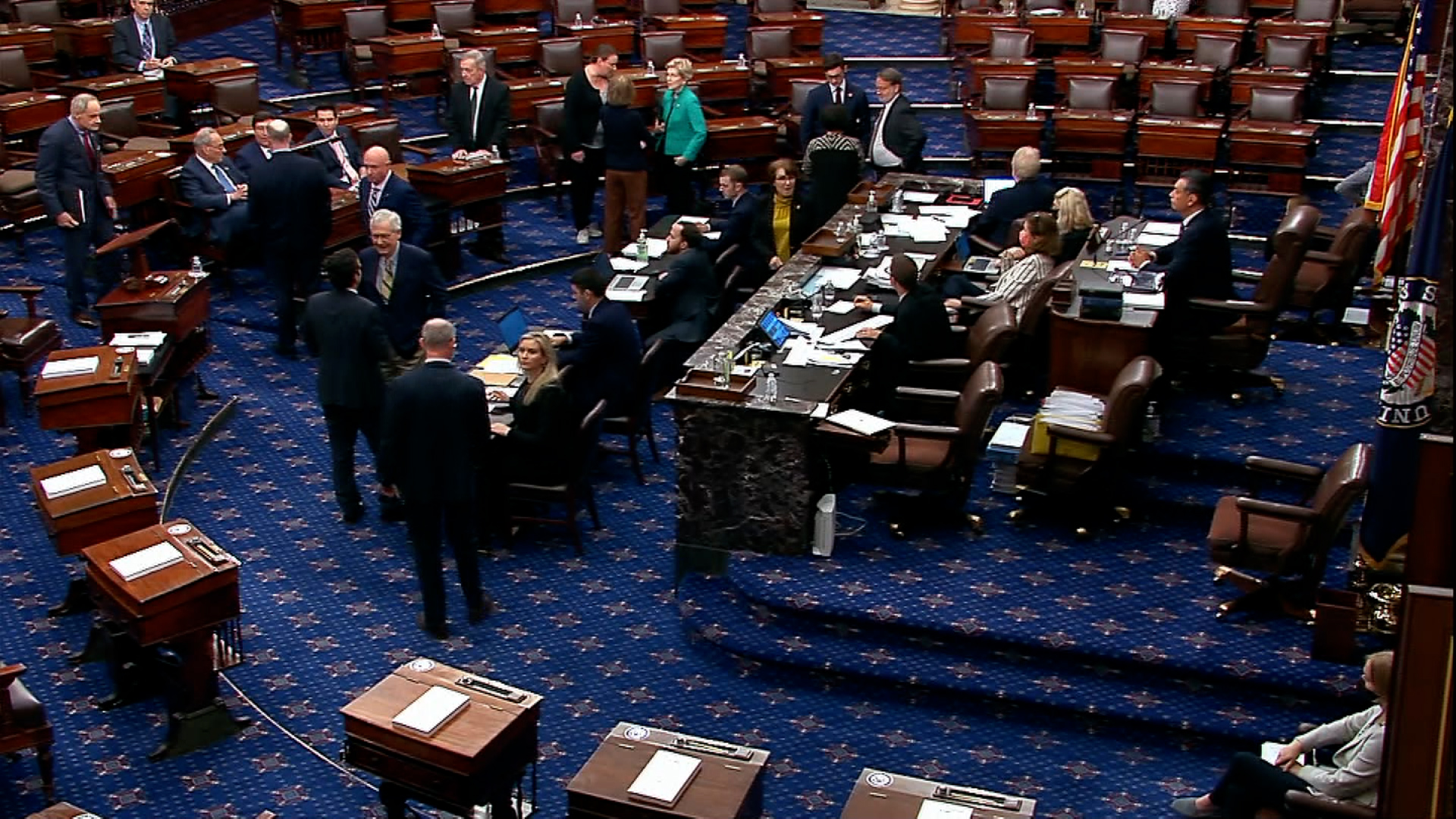
Senate Republicans blocked a bill Friday to create a commission investigating the pro-Trump riot at the US Capitol, preventing a high-profile probe into the attack that led to the deaths of five people and injured about 140 police officers.
The vote was 54 to 35. Six GOP senators voted in favor of advancing the bill:
- Sen. Mitt Romney
- Sen. Susan Collins
- Sen. Bill Cassidy
- Sen. Rob Portman
- Sen. Lisa Murkowski
- Sen. Ben Sasse
At least 10 Senate Republicans were needed to join all Democrats to advance the bill. Twice as many Republicans as expected voted for the commission, but not enough to save it.
The vote underscored the deeply partisan divide that has emerged over the insurrection earlier this year.
The House passed-bill would have set up a 10-person panel to figure out what happened on Jan. 6, including the law enforcement's preparedness and response, and provide recommendations in order "to prevent future acts of targeted violence and domestic terrorism."








